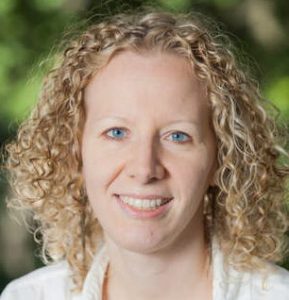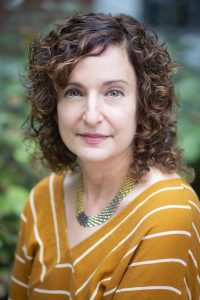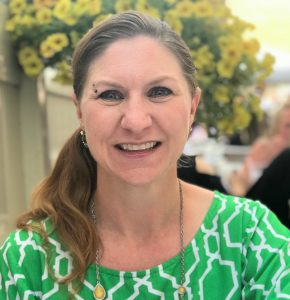Dear Junior Faculty Colleagues,
Teaching community-based learning (CBL) courses is one of the most rewarding pedagogies for students and professors, so we commend your interest in taking on this challenge. At the same time, this pedagogical approach requires a lot of preparation and dedication to ensure its success. With this in mind, we write this letter to you. We are faculty who each have been teaching CBL courses for more than a decade. Although we are sociologists, the information we discuss here is not limited to Sociology faculty; as we have taught classes in other disciplines too. We share some insights and advice, so that you may become a career practitioner rather than a one-and-done. While there are many things to consider when thinking about teaching a CBL course, we focus here on only a few areas.
Understand your motivation: Are you choosing to teach a CBL course out of your own volition or are you pressured by colleagues, administrators, the college/university’s mission, a new general education requirement, or is there a monetary incentive? Having mentored faculty members and conducted research on this topic (Ludwig & Campbell, 2023), we advise that you teach a CBL course if you full-heartedly support the core values and principles associated with CBL courses. We all arrived at teaching CBL courses through different avenues. For example, Bernadette Ludwig’s initial experience with CBL courses was when, prior to her academic career, she worked for an NGO and was approached by local colleges. In this process, she saw first-hand what works and what does not. During her graduate studies, she collaborated with another NGO for her research and subsequently was asked by that NGO if she could teach a CBL course for a university they were trying to partner with. In other words, for her the motivation has always been to be the bridge between these different fields that she has been part of; community organizations and academia. In contrast, it was the institution that made the decision for Kristin Kenneavy when it assigned her to teach “Public Sociologies,” an advanced, applied research methods course. Although she went into the experience without any particular aspirations to teach a CBL course, she quickly came to enjoy working with her students on data collection projects that mattered, like the assessment of an on-campus anti-interpersonal violence campaign.
Create sustainable and reciprocal community partnerships: Before you begin working with a community partner, familiarize yourself with the community and the people you and your students will be working with. Learn about the community, its strengths, challenges, and cultural, political, economic, and linguistic nuances, including those nuances due to (dis)abilities, sexual orientation, age, and nationality/immigrant background. Be sure you have a thorough understanding of what kind of project is useful for the community and the community partner, and be honest with yourself (and your community partner) regarding whether you and your students have the skills and bandwidth to complete a particular project or engage to the degree a partner may need. For example, Susan Rakosi Rosenbloom has found that most community partners have different needs and goals and that not all are a good fit for students. Some projects like writing an extensive grant application are likely to be out of the skill-set of first year students or even upper level students. The fit of community organizations’ needs, students’ skills and something doable in one semester requires some creative thought. We nevertheless believe that it is usually best to first listen to the community partner’s concerns and priorities before suggesting a project.
Reciprocity and sustainability ought to be the center in the partnership and built into the plans. For example, if you teach a CBL course only in the fall, what happens to the partner’s tutoring program when your students are not there? Concretely this means that Bernadette Ludwig plans her courses in such a way that students in at least one class in the fall and one in the spring are available to tutor immigrant children and refugee women with two different NGOs. In addition, she serves on the board of directors of one of these organizations, and as such is very familiar with the community members’ needs and perspectives. For Kristin Kenneavy, it was often a struggle to find enough community partners with methodological need for research projects that could be undertaken by students in the “Public Sociologies” course. It takes a lot of work and networking in order to find suitable partners that have reciprocal needs. A sustainable partnership also entails that you remain in regular communication, attend community events at other times, and consider how your efforts align and contribute to the community partner’s plans. For example, Susan Rakosi Rosenbloom still attends meetings with community partners in the housing sector although she no longer teaches CBL courses that engage with these partners.
Plan for diversity, equity, and accessibility: Planning and carrying out a CBL course needs to be mindful and thus account for students’ diverse backgrounds and statuses (e.g., gender, race, ethnicity, immigrant/native-born, socioeconomic status) since these differences often mean having distinct life experiences that can impact their encounters with community members. For example, Susan Rakosi Rosenbloom lost sleep worrying about the safety of her male students entering an all-female, low-income boarding house for their community project, as the students may be seen as a threat and possibly provoke someone to call the police. In response to this concern she organized a meet-and-greet for residents and students and asked students to visibly wear their university ID tags at all times. In addition, a group photo of the students with their names was posted prominently and also shared with individual residents. Similarly, Kristin Kenneavy found herself teaching a class comprised of only male students who were tasked—due to an agreement entered prior to the start of the semester—to interview other college students, most of them women, about bystander intervention to prevent interpersonal violence. Thus, she spent time providing tools to her male students to be as neutral and empathetic as possible when they conducted these interviews. Simultaneously, it is important to be aware of and address students’ prejudice and stereotypes about communities that they are not familiar with while also supporting the existing knowledge that comes from students’ own backgrounds (see for example, Ludwig, 2016). It is also essential to ensure that all students who are qualified and interested in taking a CBL class can do so without restraints due to money and/or physical access. One way to possibly offset the costs is applying for grants like Bernadette Ludwig did. With these funds, she was able to purchase metro cards so students could commute to and from the community partner. Other possible ways to offset the costs related with CBL classes (traveling, getting fingerprinted, etc.) is to approach your university’s Center for Civic Engagements or possibly even the community partner to ask for full or partial financial support.
We conclude by reiterating that CBL courses are challenging and time-intensive but also very rewarding and transformative, and as such have the potential to impact individual lives and communities. We hope that by outlining some of these principles when teaching a CBL course, you, as a junior faculty, are able to envision a course that grows over time with a community partner because we know those collaborations are more effective.
Sincerely,
Bernadette Ludwig, PhD
Susan Rakosi Rosenbloom, PhD
Kristin, Kenneavy, PhD

Bernadette Ludwig is an Associate Professor of Sociology and the Director of Civic Engagement at Wagner College. Professor Ludwig’s research focuses on how racism affects African refugees in their ability to find refuge and in the resettlement process. Her other work investigates how community engagement can nurture students’ sense of social justice and belonging.

Susan Rakosi Rosenbloom, Associate Professor of Sociology and Civic Engagement at Drew University, is an advocate for integrating academic learning and research with real-world problems working with community partners. Her research focuses on adolescent friendship, peer group racial dynamics, and NYC school choice policies.

Kristin Kenneavy is an Associate Professor of Sociology at Ramapo College of New Jersey. She previously was a Faculty Fellow for Civic and Community Engagement and currently convenes the Civic and Community Leadership Minor, which she helped create. Her work examines bystander intervention to prevent interpersonal violence among college students.


Comments